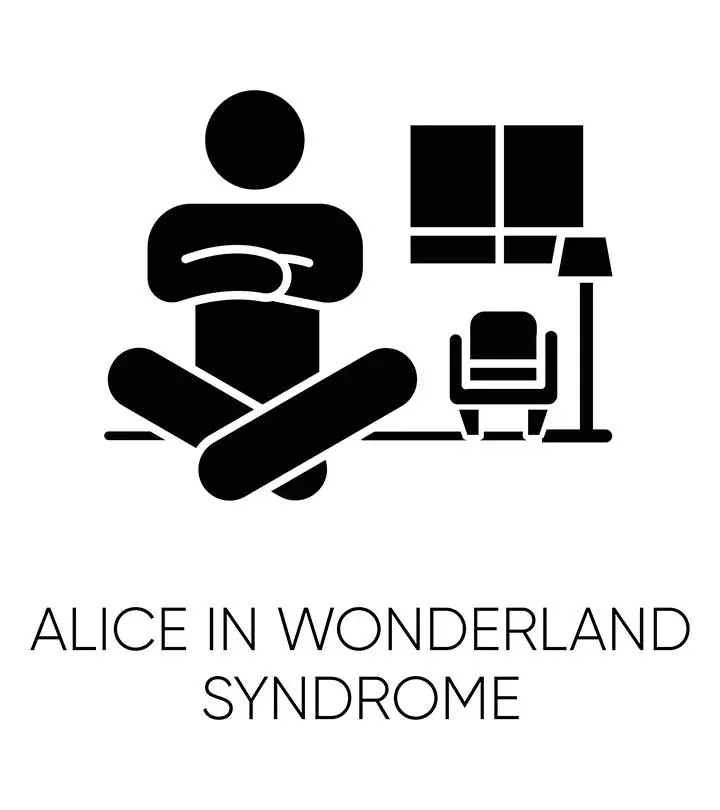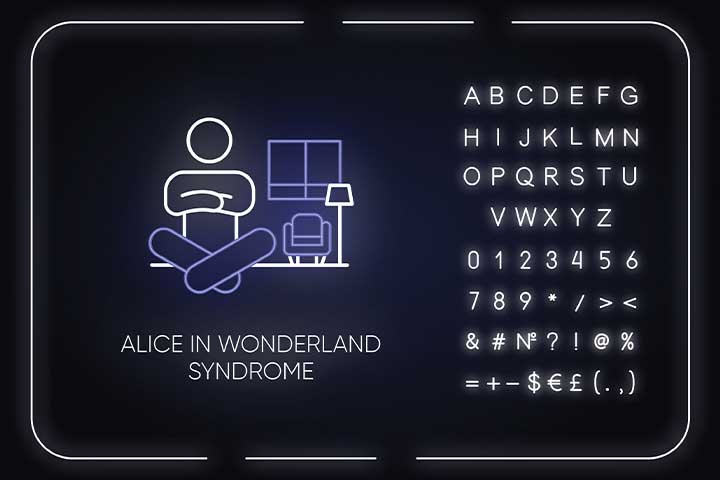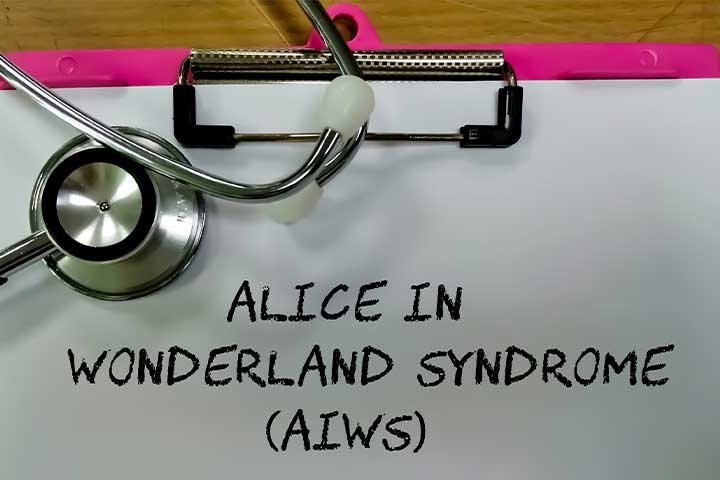
Image: Shutterstock
Envision a reality where the very foundations of physics appear to contort and warp, where the ordinary transforms into the extraordinary as shapes and sizes dance before your eyes, and where the very world undergoes a mesmerizing dance of transformation. No, this isn’t a chapter torn from the pages of a whimsical fantasy novel; it’s a tangible occurrence known as Alice in Wonderland Syndrome (AIWS). If this term is unfamiliar to you, fear not – we’re here to illuminate the captivating realm of AIWS, unraveling its intricacies, exploring its origins, treatment avenues, and underscoring the vital importance of spreading awareness about this perplexing phenomenon. Read on to know more!
What Is Alice In Wonderland Syndrome?
Alice in Wonderland Syndrome (AIWS) might sound like something out of a Lewis Carroll tale, but it’s actually a rare and bewildering neurological condition that can turn one’s perception of reality completely upside down. Imagine the disorienting feeling of being caught in a surreal dreamscape, where the rules of the physical world seem to warp and twist at their very core. AIWS plunges individuals into precisely this astonishing experience, as their senses play tricks on them and the ordinary becomes extraordinary.
People with AIWS find themselves navigating a perplexing labyrinth of visual and sensory distortions. One of the hallmark symptoms of this syndrome is the profound alteration of one’s own body image. Imagine gazing at your own hands, only to witness them morphing in size before your very eyes – expanding like balloons or shrinking into miniature replicas. This unsettling phenomenon can extend beyond the self, as everyday objects undergo astonishing metamorphoses. Picture a chair transmuting from a standard seat to an oversized throne, or a seemingly distant wall rushing forward with alarming speed. It’s akin to having a front-row seat to a reality-bending magic show, where the boundaries of perception are pushed to their limits.
Alice In Wonderland Syndrome Causes
Image: Shutterstock
The exact causes of AIWS are not fully understood, but it’s believed to be related to disruptions in the brain’s sensory processing. Migraines, epilepsy, and infections like the Epstein-Barr virus have been associated with AIWS episodes. Additionally, AIWS has been observed in cases of drug use and during periods of sleep deprivation. The brain’s intricate network of signals and perceptions can sometimes go awry, leading to these surreal experiences.
Alice In Wonderland Syndrome Treatment
If you or someone you know experiences AIWS, seeking medical advice is crucial. Treatment options depend on the underlying cause. For instance, if AIWS is linked to migraines, managing and preventing migraines may alleviate the symptoms. If infections are the trigger, treating the infection might help. In some cases, medications used to control epilepsy or migraines may be prescribed. It’s essential to consult a medical professional for proper evaluation and personalized treatment.
Why We Need More Awareness For AIWL
Awareness about Alice in Wonderland Syndrome is relatively limited, which can lead to confusion and anxiety for those who experience it. Imagine feeling like you’re losing touch with reality, only to be met with puzzled looks when you try to explain your sensations. By raising awareness about AIWS, we can create a more understanding and supportive environment for those who are affected.
Furthermore, increased awareness could lead to more research into the causes and treatment of AIWS. As we learn more about the condition, we can develop more effective strategies for managing and even preventing its episodes. This knowledge could significantly improve the quality of life for individuals dealing with AIWS.
What To Do If Your Kid Has AIWL
Image: Shutterstock
If you suspect that your child might be experiencing episodes of AIWS, it’s important to approach the situation with empathy and concern. Children might find it challenging to articulate their experiences, so be patient and attentive when they try to describe their sensations. Keep a journal of their episodes, noting any potential triggers such as lack of sleep or specific foods. This information could be valuable for healthcare professionals in diagnosing and treating the condition.
Seek medical advice promptly to rule out any underlying medical issues. A healthcare provider can conduct a thorough evaluation and recommend appropriate tests. Remember, you’re not alone in this journey – connect with support groups or online communities where you can share experiences and learn from others who have dealt with AIWS.
Alice in Wonderland Syndrome is a captivating yet mysterious condition that affects perception and reality. While the causes are not fully understood, its impact on individuals is undeniable. By increasing awareness and understanding about AIWS, we can offer support to those who experience it and drive research to uncover more about this enigmatic phenomenon. If you or someone you know is dealing with AIWS, remember that seeking medical guidance is crucial, and with the right approach, management, and care, it’s possible to navigate the curious world of AIWS with confidence.














